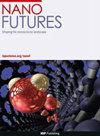Real-time decoding for fault-tolerant quantum computing: progress, challenges and outlook
IF 3.3
4区 材料科学
Q3 MATERIALS SCIENCE, MULTIDISCIPLINARY
引用次数: 12
Abstract
Quantum computing is poised to solve practically useful problems which are computationally intractable for classical supercomputers. However, the current generation of quantum computers are limited by errors that may only partially be mitigated by developing higher-quality qubits. Quantum error correction (QEC) will thus be necessary to ensure fault tolerance. QEC protects the logical information by cyclically measuring syndrome information about the errors. An essential part of QEC is the decoder, which uses the syndrome to compute the likely effect of the errors on the logical degrees of freedom and provide a tentative correction. The decoder must be accurate, fast enough to keep pace with the QEC cycle (e.g. on a microsecond timescale for superconducting qubits) and with hard real-time system integration to support logical operations. As such, real-time decoding is essential to realize fault-tolerant quantum computing and to achieve quantum advantage. In this work, we highlight some of the key challenges facing the implementation of real-time decoders while providing a succinct summary of the progress to-date. Furthermore, we lay out our perspective for the future development and provide a possible roadmap for the field of real-time decoding in the next few years. As the quantum hardware is anticipated to scale up, this perspective article will provide a guidance for researchers, focusing on the most pressing issues in real-time decoding and facilitating the development of solutions across quantum, nano and computer science.容错量子计算的实时解码:进展、挑战和展望
量子计算有望解决经典超级计算机在计算上难以解决的实际问题。然而,当前这一代量子计算机受到错误的限制,这些错误可能只能通过开发更高质量的量子比特来部分缓解。因此,量子纠错(QEC)将是确保容错的必要条件。QEC通过循环测量有关错误的综合征信息来保护逻辑信息。QEC的一个重要部分是解码器,它使用该综合征来计算错误对逻辑自由度的可能影响,并提供试探性修正。解码器必须准确,足够快,以跟上QEC周期(例如,超导量子比特在微秒时间尺度上),并具有硬实时系统集成以支持逻辑操作。因此,实时解码是实现容错量子计算和实现量子优势的关键。在这项工作中,我们强调了实现实时解码器所面临的一些关键挑战,同时简要总结了迄今为止的进展。此外,我们对未来的发展进行了展望,并为未来几年的实时解码领域提供了可能的路线图。随着量子硬件规模的扩大,这篇前瞻性文章将为研究人员提供指导,重点关注实时解码中最紧迫的问题,并促进量子、纳米和计算机科学解决方案的发展。
本文章由计算机程序翻译,如有差异,请以英文原文为准。
求助全文
约1分钟内获得全文
求助全文
来源期刊

Nano Futures
Chemistry-General Chemistry
CiteScore
4.30
自引率
0.00%
发文量
35
期刊介绍:
Nano Futures mission is to reflect the diverse and multidisciplinary field of nanoscience and nanotechnology that now brings together researchers from across physics, chemistry, biomedicine, materials science, engineering and industry.
 求助内容:
求助内容: 应助结果提醒方式:
应助结果提醒方式:


